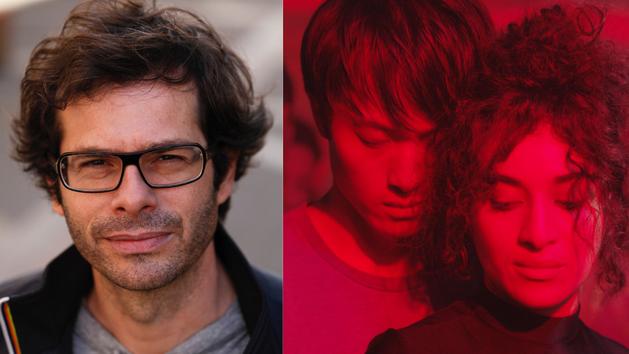Corsican director Frédéric Farrucci plunges into the darkness of the City of Light. In his first feature film, La Nuit venus , he stages a romance between a clandestine VTC driver (Guang Huo) and a lost stripper (Camélia Jordana) in the heart of a night owl in Paris. Against the backdrop of film noir, glittering neon lights and electronic music, he observes the insomniacs of the capital with tenderness and melancholy.
LE FIGARO.- How did this romance arise between an illegal immigrant driver of VTC and a stripper?
Frédéric FARRUCCI.- These are several things that are intertwined. Nicolas Journet, who is the co-scriptwriter of La nuit venue, lived a story with a stripper. While investigating these young women, he discovered that many of them were also call girls and had a regular taxi driver who came to pick them up after their leaves had been stripped. However, I needed more than a pure romance between a taxi driver and a stripper to get started in this story.
What research did you do from there?
We then investigated the taxi drivers at night. There was a sort of urban legend that kept coming back to the fact that Chinese taxi drivers were stowaways in stolen cars. Rumor that we have, by the way, never been able to verify. But I had my starting point: the mafia side, the mystery and the marginality. All of this was perfect for building a film noir universe. There was also the concept of modern slavery with this immigrant who works as a driver to pay off a debt to Chinese criminals.
When we talk about the Chinese mafia in Paris it is mainly to talk about prostitution in Belleville. Are you moving into the unknown with this hypothesis of taxi drivers?
The film swings between two realities. I wanted to assume the fiction side, the idea of drivers exploited by a mafia, while keeping the correctness vis-à-vis this community. I called on Simeng Wang, a CNRS researcher who is a native of China and who works on migratory flows with France. She explained to me that when a woman or a man contracts a debt by coming to France, he had to repay it by working without having visibility on the outcome of this debt. This relates to textiles and catering. But there are also prostitutes now.
This brings to mind the undocumented migrants exploited by Deliveroo deliverers…
It's an excruciating story. What is terrible is that we are making a fiction, and while we were preparing for the film, this case is exposed. The real is always at the heart of fiction.
Read also: Clandestine delivery men on bikes: how to deal with drift?
What challenges you in the Parisian night?
People who live at night interest me a lot. Paris at night is much more alive. Standards and margins mix. Society is much less divided than it was today. There are meetings that can take place that could not take place otherwise. I live in the nineteenth arrondissement of Paris, a district in the grip of misery. It is mainly pockets of misery and this underground life that question me. I see these people under the ring road who live in tents and it troubles me. I don't know if there are any worse places to stay overnight. I wanted to use the point of view of Jin (Guang Huo), my protagonist, who is in a very precarious situation, to look at this misery: the Bangladeshis who sell roses in restaurants, the young Africans who sell miniature Eiffel towers under the Eiffel Tower… Through Jin's eyes, we will meet these people without judgment, at breast height.
Was it important for you to make Jin a former DJ?
I wanted there to be electronic music. For me, making my main character a former DJ was a way of anchoring the film in a form of contemporaneity. I am annoyed by this recurring image of the African or Asian immigrant who arrives from his 19th century to arrive in our fantastic modern city. These people are dealing with the same realities as us. The only thing that separates us from them is a passport.
Have you thought of this film with Rone's music from the start?
It is absolutely my first choice. There is something melancholy and hovering in Rone's music. There are often a few bursts of joy and therefore touches of hope. It coincided with the film's vision. We sent him the script without expecting much. Three days later I had lunch with him. He had read it and was a fan of the film. He had identified all the intentions, it was quite magic. As we got on well, I wrote the concert scene in which he plays in the film.
How did you come to cast Camélia Jordana as a femme fatale?
I love the singer. I really like the actress. And I also really like the citizen. Her political word, the fact that she goes there like that. I first found Guang Huo, the actor to play Jin. Then we thought of her, I don't know why. But I liked this couple. I thought it gave off something magnetic. It amused me a lot to go and find this ultra-contemporary and ultra-feminist woman to offer her the role of an archetypal woman, sensual and aware of her sensuality. It attracted her a lot too.
What did you think of his recent statements about the police ?
She says things that Amnesty International has been writing for months. To deny that there is police violence in France is to deny the obvious. I do not understand why this is scandalous. When we watch the show, we can see that it does not let go of it out of provocation.

